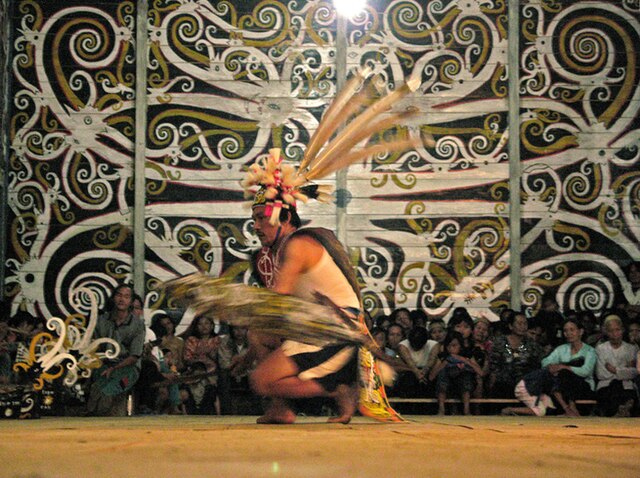
The kidiu (pictured above) is a unique aerophone in Malaysian folk music, specifically a bullroarer, which is a type of free aerophone that lacks an air column or closed air reservoir. Used by the Kenyah-Badang ethnic group in the Upper Rejang River region of Sarawak, the kidiu is typically played in small ensembles of two or three bullroarers to create melodies. The kidiu consists of a flat, oval disc made from wood or bamboo, with precise dimensions–at least ten centimeters in length, about eight to ten centimeters in width, and two to three centimeters in thickness. The disc is attached to a string, which is connected to a bamboo pole with a handle, with both the string and bamboo pole being approximately the same length.

The player holds the bamboo pole by its handle and swings the kidiu disc quickly through the air, generating swirling air currents that produce distinct short notes. These notes vary based on the size of the disc and the speed at which it is swung. Typically, two or more players use differently sized kidiu discs, swinging them at specific intervals to create a range of notes, depending on the strength and direction of their swings–either forward, backward, or in a circular motion. Played in an interlocking pattern, the two or three kidiu discs produce repeating short melodic phrases as long as the players continue swinging them.

Initially, the kidiu was used in rice paddies to scare away pests like birds, mice, and insects that threatened the rice crops. Over time, however, it evolved into a musical instrument used for entertainment among the residents of the longhouse.
This according to the featured article on the music of Malaysia by Patricia Matusky in MGG Online.




